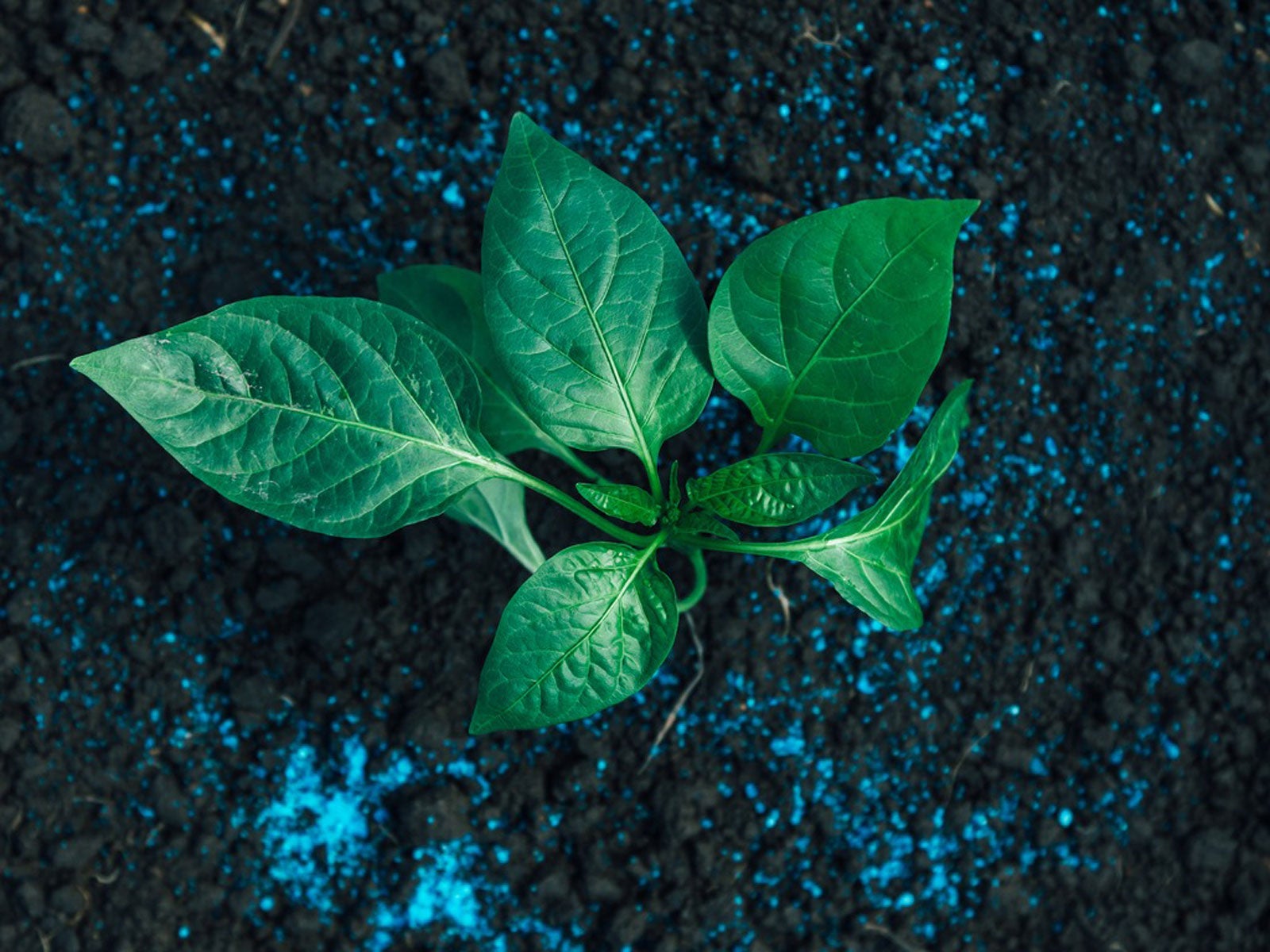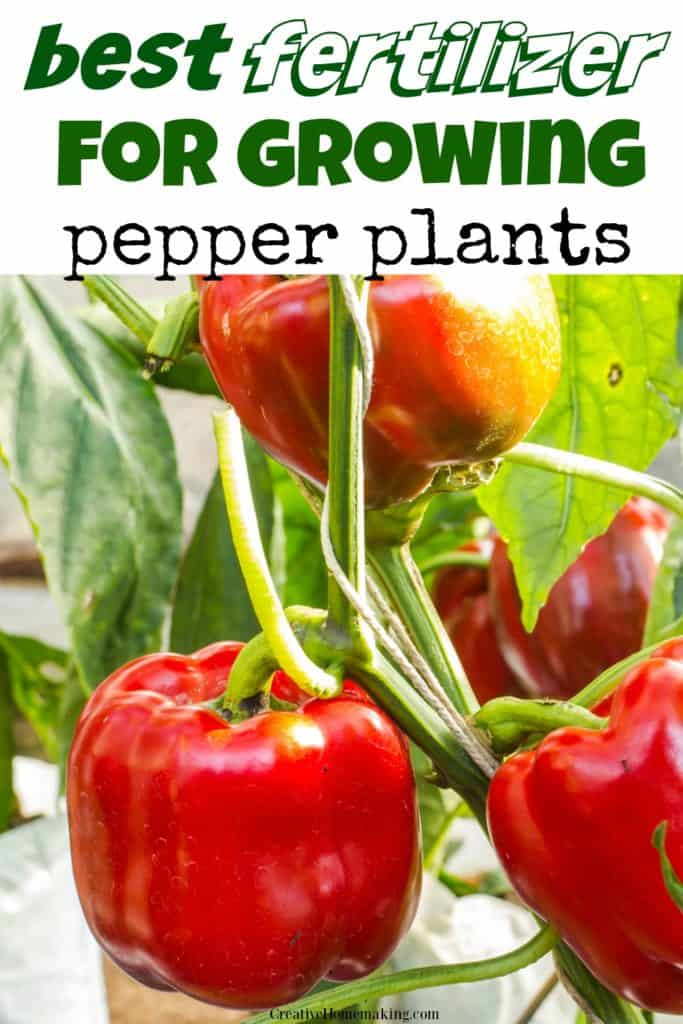Find Out the Best Fertilizers for Peppers: Top Picks for Ideal Growth
Find Out the Best Fertilizers for Peppers: Top Picks for Ideal Growth
Blog Article
Organic Vs. Synthetic Fertilizers: Which Is Best for Nurturing Healthy And Balanced Pepper Plants?
In the world of nurturing healthy pepper plants, the selection in between artificial and natural fertilizers stands as a pivotal choice with far-ranging ramifications. While both options aim to give necessary nutrients to support plant growth, the subtleties of their effect on the dirt, plant health and wellness, and the environment trigger a dispute that echoes throughout the horticulture neighborhood. Understanding the distinctive advantages and potential challenges of each fertilizer kind is vital for pepper cultivators looking for to optimize their returns while preserving a sustainable and eco-conscious approach.
Advantages of Organic Fertilizers
Organic plant foods provide a lasting and environmentally-friendly strategy to nourishing pepper plants, giving vital nutrients without the use of synthetic chemicals. These all-natural fertilizers are acquired from organic resources such as compost, manure, bone meal, and algae, promoting dirt wellness and biodiversity. Unlike synthetic plant foods, organic choices launch nutrients slowly, making sure a steady and well balanced supply for pepper plants to prosper.
One significant benefit of natural fertilizers is their capability to boost dirt structure and water retention. By improving dirt health, natural plant foods promote useful microbial task, which aids in nutrient uptake by pepper plants. Furthermore, natural plant foods reduce the danger of chemical run-off, securing water resources from pollution and protecting the atmosphere.
In addition, organic fertilizers contribute to long-lasting dirt fertility by advertising the development of beneficial soil organisms. These organisms assist damage down natural issue, releasing nutrients in a form that is quickly obtainable to pepper plants. best fertilizers for peppers. By cultivating a healthy and balanced dirt ecosystem, organic fertilizers support sustainable pepper cultivation techniques that profit both plants and the setting
Downsides of Artificial Plant Foods
Synthetic fertilizers, in comparison to their natural counterparts, pose numerous downsides when used to nurture pepper plants, influencing both plant health and wellness and environmental sustainability. One significant disadvantage of synthetic plant foods is their tendency to leach nutrients from the dirt rapidly.
Moreover, the overuse of artificial fertilizers can add to water contamination. Excess fertilizers not soaked up by plants can get rid of into water bodies, causing eutrophication, where algae blooms diminish oxygen levels in the water, damaging marine life. In addition, artificial plant foods are commonly stemmed from non-renewable sources, such as nonrenewable fuel sources, contributing to carbon discharges and environmental degradation during their production.
Nutrient Absorption Comparison
Reliable nutrient absorption plays a vital role in the general wellness and development of pepper plants. When comparing synthetic and natural plant foods in terms of nutrient absorption, organic plant foods have the benefit of offering an extra well balanced and slow-release source of nutrients (best fertilizers for peppers). Organic fertilizers have a variety of macro and micronutrients that are not just beneficial for the plants however additionally advertise healthy soil view microbial activity, which assists in nutrient uptake. On the various other hand, synthetic fertilizers typically give a quick release of nutrients, which can result in seeping and drainage, resulting in lower nutrient absorption rates by the plants.
Moreover, natural plant foods improve soil structure and water retention capability, enabling pepper plants to gain access to nutrients a lot more effectively. This enhanced dirt high quality promotes origin advancement, making it possible for far better nutrient absorption. Artificial plant foods, although at first improving plant development because of their high nutrient concentrations, may hinder long-term nutrient absorption by derogatory dirt wellness gradually.
Ecological Effect Considerations

On the various other hand, synthetic plant foods, although commonly more focused and quickly readily available to plants, can have detrimental impacts on the atmosphere if not applied properly (best fertilizers for peppers). Their production needs high energy inputs, causing greenhouse gas emissions and adding to climate adjustment. The drainage of excess synthetic plant foods can infect water sources, leading to eutrophication and hurting marine communities.
Ideal Plant Food Practices for Peppers
To achieve this, it is essential to follow best fertilizer techniques customized to the details demands of pepper plants. One vital technique is to do a soil test before applying any plant foods.
An additional crucial method is to fertilize pepper plants at the correct time. Typically, peppers take advantage of obtaining plant food at planting and afterwards once more when they begin to flower. Over-fertilizing can lead to nutrient inequalities and hurt the plants, investigate this site so it is important to follow advised application prices.
Furthermore, choosing a well balanced fertilizer with an NPK ratio that matches pepper plants' demands is fundamental. Organic plant foods, such as compost or manure, can be excellent choices as they launch nutrients slowly and boost soil structure with time. Artificial fertilizers can provide a fast nutrient boost when required. Eventually, integrating organic and artificial fertilizers carefully can help support healthy pepper plants while lessening environmental influence.
Verdict

Organic fertilizers provide a lasting and environmentally-friendly method to beneficial pepper plants, giving important nutrients without the usage of artificial chemicals. Unlike synthetic fertilizers, organic alternatives launch nutrients slowly, guaranteeing a balanced and steady supply for pepper plants to prosper.
Artificial plant foods, in comparison to their natural equivalents, posture numerous downsides when utilized to nurture pepper plants, influencing both plant wellness and ecological sustainability. When contrasting artificial and organic plant foods in terms of nutrient absorption, natural fertilizers have the advantage of providing an extra balanced and slow-release resource of nutrients.Moreover, natural fertilizers boost soil framework and water retention ability, allowing pepper plants to access nutrients more efficiently.
Report this page